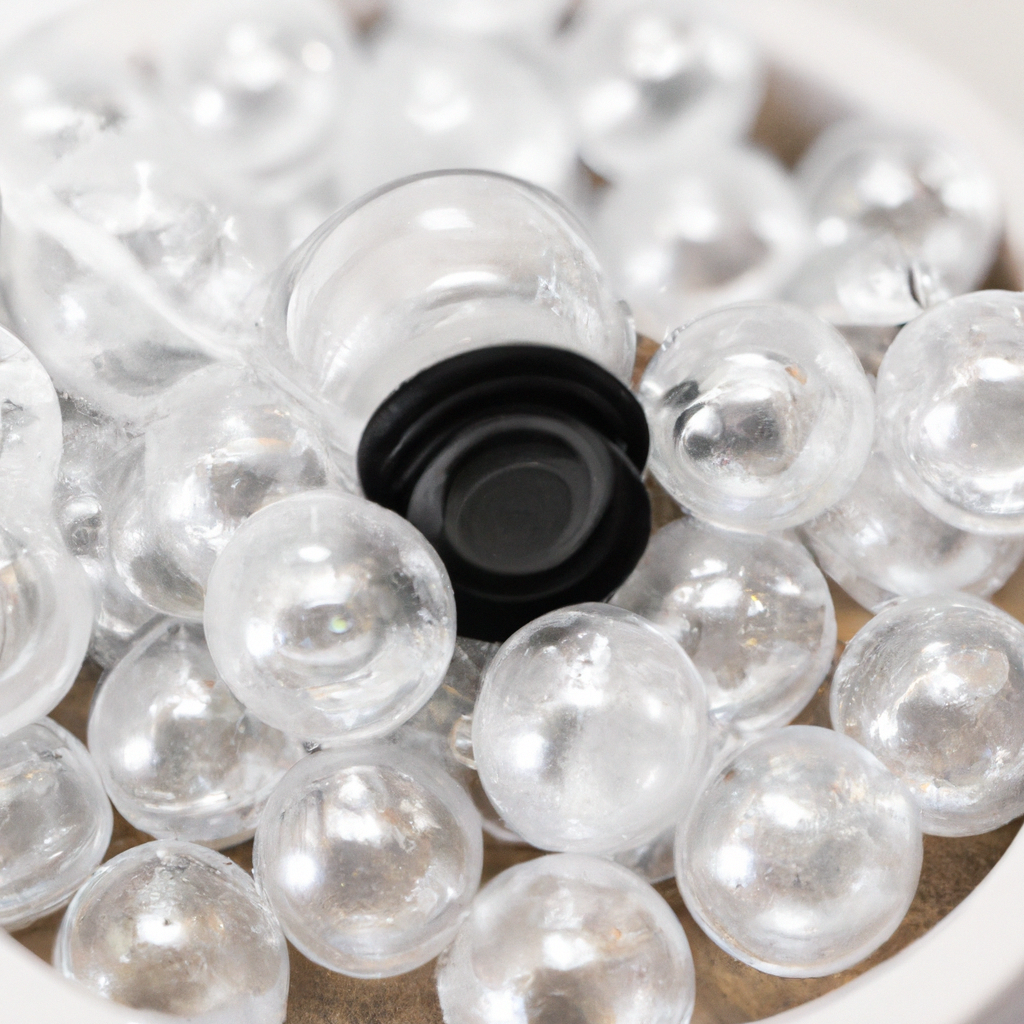Table of Contents
- Introduction
- Understanding Mushroom Coffee Basics
- Health Benefits of Mushroom Coffee
- Potential Downsides and Side Effects
- Comparison with Regular Coffee
- Safety Considerations and Guidelines
- Alternatives to Mushroom Coffee
- Conclusion
- Integrating Cupping into Your Routine
Introduction

The Rise of Mushroom Coffee: A Healthier Brew?
Coffee: for many, it’s the lifeblood of the morning, the fuel for productivity, and a comforting ritual. Globally, we consume over two billion cups every single day. But what if you could enjoy that familiar coffee experience with added health benefits? Enter mushroom coffee, a novel alternative that’s been gaining traction in the wellness world.
Mushroom coffee isn’t just your regular cup of joe with a quirky twist. It’s a blend of coffee and medicinal mushrooms, often touted for its potential to boost energy, focus, and overall well-being. The secret ingredient lies in adaptogens, natural substances that have been used for centuries in traditional Chinese medicine to help the body resist stressors of all kinds, whether physical, chemical or biological.
What is Mushroom Coffee?
Mushroom coffee is, quite simply, a beverage made by combining ground coffee beans with ground medicinal mushrooms. It’s not about brewing up a cup of coffee with portobellos or button mushrooms. Instead, it utilizes specific types of fungi known for their health-promoting properties.
The typical ratio is usually equal parts, a 1:1 blend of coffee to mushroom powder. This careful balance is designed to deliver the flavor and caffeine kick you expect from coffee, while also providing the unique benefits of the added mushrooms. While the concept might seem new, mushroom coffee has been quietly emerging as a health-conscious alternative for several years, finding its way onto the shelves of health food stores and into the cups of wellness enthusiasts.
What You’ll Learn
In this blog post, we’ll dive deep into the world of mushroom coffee, exploring its composition, benefits, and potential drawbacks. You’ll gain a comprehensive understanding of:
- The specific types of medicinal mushrooms commonly used in mushroom coffee and their individual properties.
- The potential health benefits associated with mushroom coffee consumption, backed by scientific research and expert opinions.
- The possible downsides and considerations to keep in mind before incorporating mushroom coffee into your daily routine.
- How to make informed decisions about whether mushroom coffee is the right choice for you, based on your individual health needs and preferences.
By the end of this guide, you’ll be well-equipped to decide if mushroom coffee is a worthy addition to your wellness journey.
Understanding Mushroom Coffee Basics
What is Mushroom Coffee?
Mushroom coffee is a brewed beverage made from a blend of ground coffee beans and powdered medicinal mushrooms. It’s often positioned as a healthier alternative to traditional coffee, offering many of the same benefits, such as increased energy and focus, but with added health advantages from the mushrooms.
One of the most appealing aspects of mushroom coffee is its taste and appearance. Despite containing mushrooms, it often resembles regular coffee in both color and consistency. The mushroom flavor is typically minimal, especially when prepared correctly, making it an easy switch for those accustomed to the taste of traditional coffee.
Essential Ingredients: The Mushrooms
The key to mushroom coffee’s health benefits lies in the specific types of medicinal mushrooms used. These aren’t your typical culinary mushrooms; instead, they are varieties known for their unique properties and health-promoting compounds. Here are some of the most common medicinal mushrooms found in mushroom coffee:
- Reishi: Known for its calming properties and potential to support the immune system.
- Chaga: A powerful antioxidant that may help reduce inflammation and boost immunity.
- Lion’s Mane: Celebrated for its cognitive-enhancing effects, potentially improving memory and focus.
- Cordyceps: Often used to enhance energy levels and athletic performance.
- Turkey Tail: Rich in polysaccharides, which can support gut health and immune function.
- Agaricus Blazei: Known for its immune-modulating and anti-inflammatory properties.
Many of these medicinal mushrooms are considered adaptogens. Adaptogens are natural substances that help the body adapt to stress, whether it’s physical, chemical, or biological. They work by bringing the body back to a state of balance, helping to regulate various systems and improve overall resilience.
Preparation Methods
Mushroom coffee is typically prepared by combining powdered medicinal mushrooms with ground coffee. A common ratio is often 1:1, but this can be adjusted to suit individual taste preferences. The mixture is then brewed like regular coffee, using a drip coffee maker, French press, or pour-over method.
Mushroom coffee is available in several convenient forms, including instant powder, ground blends, and even coffee pods compatible with popular coffee machines. Instant powder is the easiest to prepare, simply requiring hot water, while ground blends offer a more traditional coffee brewing experience.
For those who prefer a more customized approach, making mushroom coffee at home is also an option. This involves purchasing mushroom powder separately and adding it to your favorite ground coffee. This allows you to control the type and amount of mushrooms used, tailoring the blend to your specific needs and preferences.
Health Benefits of Mushroom Coffee

Health Benefits of Mushroom Coffee
Nutritional Content
Mushroom coffee boasts a unique nutritional profile, thanks to the inclusion of medicinal mushrooms. These fungi are packed with bioactive compounds, vitamins, and minerals that contribute to the potential health benefits associated with this beverage.
Two key groups of bioactive compounds found in mushroom coffee are carotenoids and polyphenols.
- Carotenoids: These pigments, known for their antioxidant properties, may offer a range of health benefits. Research suggests that carotenoids can support immunity, promote eye health, and contribute to cardiovascular well-being.
- Polyphenols: Another class of antioxidants, polyphenols, are abundant in mushrooms. They have been linked to potential anticancer and hypoglycemic effects, making them valuable additions to your diet.
In addition to these powerful antioxidants, mushroom coffee also provides essential vitamins and minerals. While the specific nutrient composition varies depending on the types of mushrooms used, you can generally expect to find vitamins like B vitamins and minerals like selenium, potassium, and copper.
Potential Health Benefits
The combination of coffee and medicinal mushrooms creates a beverage with a range of potential health benefits. Here are some of the most notable:
Many people turn to mushroom coffee as a way to enhance focus and energy without the jitters often associated with regular coffee. This is primarily due to the lower caffeine content, typically about half that of a standard cup of coffee.
The result is a smoother, more sustained energy boost that can improve concentration and productivity throughout the day.
Medicinal mushrooms are renowned for their immune-boosting and antioxidant properties. Certain types, such as Agaricus Blazei, have been shown to activate immune cells, strengthening the body’s defenses against illness.
Regular consumption of mushroom coffee may contribute to a more robust immune system.
Adaptogenic compounds found in some mushrooms, like Reishi and Lion’s Mane, may help the body manage stress more effectively. Adaptogens work by regulating cortisol levels, the hormone associated with stress.
By incorporating mushroom coffee into your routine, you may experience decreased anxiety and depression symptoms, promoting a sense of calm and well-being.
Mushrooms possess prebiotic effects, meaning they can nourish beneficial bacteria in the gut. A healthy gut microbiome is essential for overall health, supporting digestion, immunity, and even mental well-being.
Chaga mushrooms, in particular, have shown promise in supporting heart health. Some studies suggest that Chaga may help lower cholesterol levels, a key factor in maintaining cardiovascular health.
Cordyceps mushrooms are often touted for their potential to boost exercise performance. They may improve oxygen delivery to muscles, leading to increased endurance and reduced fatigue during physical activity.
Potential Downsides and Side Effects
Digestive Issues
While mushroom coffee offers a unique and potentially beneficial alternative to traditional coffee, it’s important to be aware of potential downsides, particularly concerning digestion. Mushroom extracts, though generally well-tolerated, can be hard on the digestive system for some individuals. Those with pre-existing kidney or digestive problems might experience discomfort. It is crucial to start with a small dose to assess tolerance.
Furthermore, certain mushrooms, such as Chaga, contain high levels of oxalates. Oxalates are naturally occurring compounds that, in high concentrations, can increase the risk of kidney stone formation in susceptible individuals. If you have a history of kidney problems, consult with your healthcare provider before incorporating mushroom coffee into your routine.
Allergic Reactions
As with any food or supplement, allergic reactions to mushroom coffee are possible, although relatively uncommon. Individuals with known allergies to specific types of mushrooms are at a higher risk. It’s essential to carefully review the ingredient list of any mushroom coffee product to ensure it doesn’t contain mushrooms you are allergic to.
Symptoms of an allergic reaction can vary, ranging from mild skin rashes and itching to more severe respiratory issues. If you experience any adverse reactions after consuming mushroom coffee, discontinue use immediately and seek medical attention.
Medication Interactions
Mushroom coffee contains bioactive compounds that may interact with certain medications. This is particularly important for individuals taking medications that affect blood sugar levels, blood pressure, or blood clotting. For example, some mushrooms have hypoglycemic effects, potentially amplifying the effects of diabetes medications and leading to excessively low blood sugar.
Additionally, certain compounds found in mushrooms can interfere with blood clotting. If you are taking anticoagulant medications, such as warfarin, it’s crucial to consult with your doctor before consuming mushroom coffee to avoid potential complications.
Caffeine Sensitivity
While mushroom coffee typically contains less caffeine than regular coffee, it’s not entirely caffeine-free. Individuals who are highly sensitive to caffeine may still experience some of the negative effects associated with caffeine consumption, such as insomnia, restlessness, or anxiety. The reduced caffeine content may not completely eliminate these effects in sensitive individuals.
If you are particularly sensitive to caffeine, consider starting with a very small dose of mushroom coffee and gradually increasing it as tolerated. Alternatively, you might explore caffeine-free mushroom coffee options.
Autoimmune Diseases
Mushrooms are known for their immunomodulating properties, meaning they can influence the activity of the immune system. While this can be beneficial for many, individuals with autoimmune diseases should exercise caution. In some cases, the immune-stimulating effects of mushrooms could potentially exacerbate overactive immune systems, leading to increased symptoms.
If you have an autoimmune disease, it’s essential to consult with your healthcare provider before incorporating mushroom coffee into your diet. They can help you assess the potential risks and benefits based on your specific condition and medications.
Comparison with Regular Coffee

Comparison with Regular Coffee
Caffeine Content
One of the most notable differences between mushroom coffee and regular coffee lies in its caffeine content. Typically, mushroom coffee contains approximately half the amount of caffeine found in a standard cup of joe. This reduction is primarily due to the inclusion of mushroom powder in the blend, which dilutes the overall caffeine concentration.
To put this into perspective, an 8-ounce cup of regular coffee usually contains around 95mg of caffeine. In contrast, an equivalent serving of mushroom coffee generally contains about 45-50mg of caffeine. This lower caffeine level can be a significant advantage for individuals sensitive to caffeine’s effects or those looking to reduce their daily intake.
Nutritional Profile
Beyond caffeine levels, mushroom coffee distinguishes itself through its enhanced nutritional profile. While regular coffee primarily offers caffeine and certain antioxidants, mushroom coffee provides additional nutrients derived from the medicinal mushrooms used in its formulation.
These added nutrients can include beneficial compounds like carotenoids and polyphenols, which are known for their antioxidant and anti-inflammatory properties. These compounds contribute to the potential health benefits associated with mushroom coffee, setting it apart from the comparatively limited nutritional value of regular coffee.
Cost and Availability
Despite its potential benefits, mushroom coffee does come with certain drawbacks, particularly in terms of cost and availability. Generally, mushroom coffee is more expensive than regular coffee. This higher price point reflects the cost of sourcing and processing the medicinal mushrooms, as well as the specialized blending process required to create the final product.
Furthermore, mushroom coffee is less widely available compared to regular coffee. While you can easily find regular coffee in almost any grocery store or café, mushroom coffee is often limited to specialty health food stores, online retailers, and select coffee shops. This limited availability can make it less accessible for consumers who prefer to purchase their coffee in person or from more conventional sources.
Safety Considerations and Guidelines
Consult a Healthcare Professional
Before incorporating mushroom coffee into your daily routine, it’s crucial to consult with a healthcare professional, especially if you are currently taking medications or have pre-existing health conditions. This is particularly important for individuals managing conditions like diabetes or autoimmune diseases, as mushroom extracts can potentially interact with certain medications or affect the immune system. A healthcare provider can offer personalized advice based on your individual health profile and ensure that mushroom coffee is a safe and appropriate choice for you.
Furthermore, individuals with mushroom allergies or kidney problems should exercise extra caution. While mushroom coffee utilizes specific mushroom extracts known for their health benefits, those with known allergies should always avoid products containing mushrooms to prevent allergic reactions. Similarly, people with kidney issues should consult their doctor, as some mushroom compounds could potentially affect kidney function.
Choose Reputable Brands
The quality and purity of mushroom extracts can vary significantly between brands, so it’s essential to choose reputable manufacturers. Look for brands that prioritize quality and transparency in their sourcing and production processes. This often includes providing detailed information about the types of mushrooms used, the extraction methods employed, and the overall quality control measures in place.
To ensure you’re purchasing a safe and effective product, look for third-party testing and certifications. These independent evaluations verify the product’s composition, potency, and purity, ensuring that it meets specific quality standards and is free from contaminants like heavy metals or pesticides. Choosing brands that invest in third-party testing demonstrates their commitment to providing consumers with a reliable and trustworthy product.
Dosage and Frequency
When introducing mushroom coffee into your diet, it’s wise to start with small amounts to assess your tolerance. This allows you to observe how your body reacts to the mushroom extracts and minimize the risk of any potential side effects. Begin with a half-serving or a single cup per day and gradually increase the amount as tolerated.
While individual needs may vary, a general recommendation is to consume 1-2 cups of mushroom coffee per day. This amount is typically considered safe and effective for most individuals. However, it’s essential to pay attention to your body’s signals and adjust the dosage accordingly. If you experience any adverse effects, such as digestive discomfort or allergic reactions, discontinue use and consult with a healthcare professional.
Alternatives to Mushroom Coffee

Alternatives to Mushroom Coffee
Consuming Fresh Mushrooms
While mushroom coffee offers a convenient way to incorporate fungi into your diet, consuming fresh mushrooms is another excellent alternative. Incorporating a variety of mushrooms into your meals can provide similar nutrients and health benefits without some of the potential downsides associated with mushroom coffee, such as the taste or the combination with coffee itself.
Consider adding shiitake mushrooms to stir-fries for their immune-boosting properties and rich umami flavor. Oyster mushrooms can be a delightful addition to pasta dishes or soups, offering a delicate texture and mild taste. Even common cremini mushrooms, readily available in most grocery stores, are packed with nutrients and can be easily incorporated into omelets, salads, or as a side dish. By diversifying your mushroom intake through fresh varieties, you can enjoy a wider range of flavors and textures while still reaping the potential health benefits.
Mushroom Supplements
For those seeking a more targeted approach or who find it challenging to regularly consume fresh mushrooms, mushroom supplements offer a convenient alternative. These supplements typically come in capsule or powder form and contain extracts from specific mushroom species known for their unique health properties. This allows you to focus on supplementing with the particular mushroom that aligns with your individual health goals.
For example, if you’re interested in cognitive support, you might choose a Lion’s Mane supplement. If you’re looking for immune support, a Reishi or Turkey Tail supplement could be a good option. However, it’s crucial to choose high-quality supplements from reputable brands that conduct third-party testing to ensure purity and potency. Look for supplements that specify the extraction method used and the concentration of active compounds. Consulting with a healthcare professional can help you determine the appropriate mushroom supplement and dosage for your needs.
Conclusion
Recap of Mushroom Coffee Benefits and Downsides
Mushroom coffee presents a compelling alternative to traditional coffee, offering potential benefits such as reduced caffeine jitters, improved focus, and a boost to the immune system. The adaptogenic properties of certain mushrooms, like reishi and chaga, contribute to stress reduction and overall well-being. However, it’s crucial to acknowledge that the research supporting these claims is still emerging. While initial studies and anecdotal evidence are promising, more extensive and rigorous scientific investigations are necessary to fully establish the long-term effects and efficacy of mushroom coffee.
Furthermore, it’s important to consider the potential downsides. Some individuals may experience digestive discomfort, especially when first introducing mushroom coffee into their diet. Allergic reactions to certain mushroom species are also possible, although rare. The interaction of mushroom coffee with medications is another area that requires further research. Therefore, individuals with pre-existing health conditions or those taking prescription drugs should consult with their healthcare provider before incorporating mushroom coffee into their routine.
Final Thoughts
So, is mushroom coffee right for you? The answer depends entirely on your individual health goals, preferences, and tolerance. If you’re seeking a gentler caffeine experience, a potential cognitive boost, or a natural way to support your immune system, mushroom coffee might be worth exploring. However, it’s essential to approach it with realistic expectations and a healthy dose of skepticism. Don’t view it as a miracle cure, but rather as a potentially beneficial addition to a balanced lifestyle.
Ultimately, the decision to try mushroom coffee should be an informed one. Do your research, consider your personal health profile, and listen to your body’s response. By carefully weighing the potential benefits and risks, you can determine whether mushroom coffee aligns with your individual needs and contributes positively to your overall well-being. Remember to consult with a healthcare professional for personalized advice, especially if you have any underlying health concerns.
Integrating Cupping into Your Routine

Integrating Cupping into Your Routine
Enhancing Appreciation of Coffee
Incorporating coffee cupping into your regular routine is a fantastic way to deepen your appreciation for the nuances and complexities of this beloved beverage. By practicing the techniques involved in cupping, you’ll train your senses to discern subtle differences in aroma, flavor, and body that you might otherwise miss.
The cupping process encourages you to engage with coffee in a more deliberate and focused manner. It teaches you to smell the coffee grounds in a specific way, identifying various aromatic compounds. Similarly, the tasting process involves carefully slurping the coffee to aerate it and distribute it across your palate, allowing you to detect a wider range of flavors. This practiced approach cultivates a heightened awareness of the sensory characteristics of coffee, transforming your daily cup into a more enriching experience.
Personal Enjoyment and Connection
Beyond simply identifying flavors and aromas, cupping can significantly enhance your personal enjoyment of and connection with coffee. By taking the time to intentionally evaluate each coffee, you create a more mindful and engaging ritual.
This intentionality allows you to move beyond merely consuming coffee for its caffeine content and instead appreciate the craftsmanship and artistry that goes into producing each bean. You’ll begin to recognize the unique characteristics of different origins, processing methods, and roast levels, fostering a deeper understanding and appreciation for the journey of coffee from farm to cup. Ultimately, integrating cupping into your routine transforms your relationship with coffee, turning it into a more meaningful and enjoyable experience.

